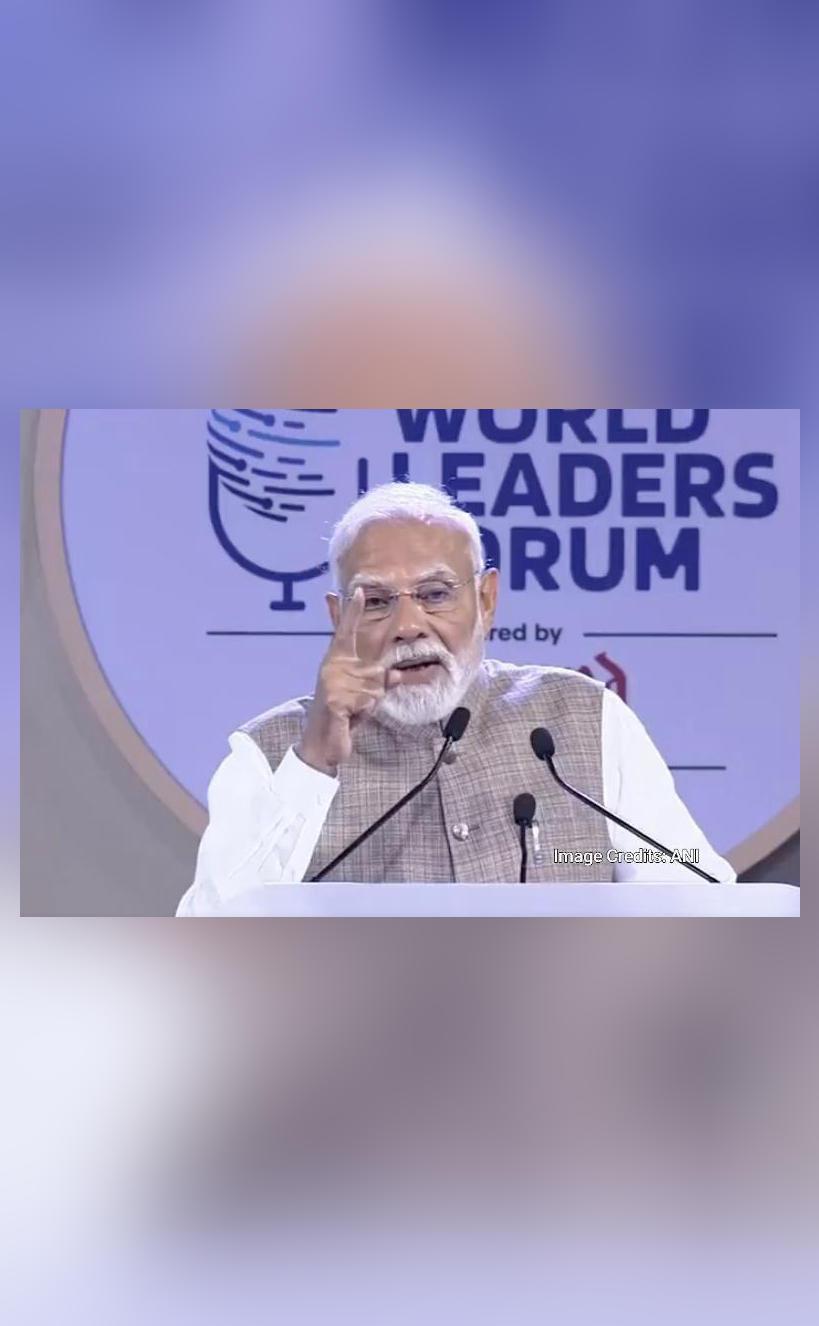
We’re not people who sit on banks of stagnant water & throw pebbles: PM
Addressing the ET World Leaders Forum 2025, Prime Minister Narendra Modi recently made a stirring statement, emphasizing India’s potential to drive global growth out of a slow pace. The PM’s remark was a powerful call to action, highlighting India’s unique approach to development and its ability to transform the world.
In his keynote address, PM Modi emphasized that India, guided by the mantra of Reform, Perform, Transform, has reached a critical juncture where it can lead the world out of a sluggish growth rate. He contrasted India’s approach with that of others, saying, “We’re not the people who sit on the banks of stagnant water and throw pebbles. We are the people who can turn…fast-flowing streams.”
This statement is more than just a metaphorical expression; it reflects India’s unwavering commitment to progress and innovation. The country has made tremendous strides in recent years, with a strong focus on economic reforms, digitalization, and infrastructure development.
India’s Economic Growth Story
India’s economic growth story is nothing short of remarkable. Over the past few years, the country has consistently maintained a growth rate of over 7%, making it one of the fastest-growing major economies in the world. This growth has been driven by a combination of factors, including a young and dynamic population, a rapidly expanding middle class, and a business-friendly environment.
The Indian government’s decisive reforms have also played a significant role in the country’s economic resurgence. Measures such as the Goods and Services Tax (GST), the Insolvency and Bankruptcy Code (IBC), and the demonetization drive have helped to boost economic activity, increase transparency, and reduce corruption.
Digital India
India’s digital transformation has been another key driver of growth. The country has made significant strides in digitalization, with a focus on e-governance, digital payments, and online services. Initiatives such as Aadhaar, the Unique Identification Authority of India (UIDAI), have enabled the government to provide social services and subsidies to citizens more efficiently.
The rise of fintech and e-commerce has also revolutionized the way people live and work in India. Online platforms such as Paytm, Flipkart, and Ola have enabled citizens to access financial services, shop, and commute more easily.
Infrastructure Development
India’s infrastructure development has also been a major focus area. The government has made significant investments in roads, highways, airports, and seaports, with the aim of improving connectivity and reducing logistics costs.
The PM’s vision for India’s infrastructure development is ambitious, with plans to build a futuristic transportation system, including high-speed trains, bullet trains, and smart cities. The country is also working to develop its renewable energy sector, with a target of generating 40% of its power from non-fossil fuels by 2030.
India’s Role in Global Growth
As PM Modi emphasized, India’s Reform, Perform, Transform mantra is not just about domestic growth, but also about its role in driving global growth. The country is well-positioned to lead the world out of a slow growth rate, with its large and young population, its growing middle class, and its business-friendly environment.
India’s economic growth has already had a significant impact on the global economy, with the country emerging as a major trade partner for many countries. The country’s growth story is also attracting foreign investment, with many multinational companies setting up operations in India.
Conclusion
In conclusion, PM Modi’s statement at the ET World Leaders Forum 2025 was a powerful reminder of India’s potential to drive global growth. The country’s Reform, Perform, Transform mantra has helped it to overcome many challenges and achieve significant economic growth.
India’s focus on digitalization, infrastructure development, and innovation has enabled it to turn stagnant water into fast-flowing streams. As the country continues to reform and transform, it is poised to play an increasingly important role in the global economy.






